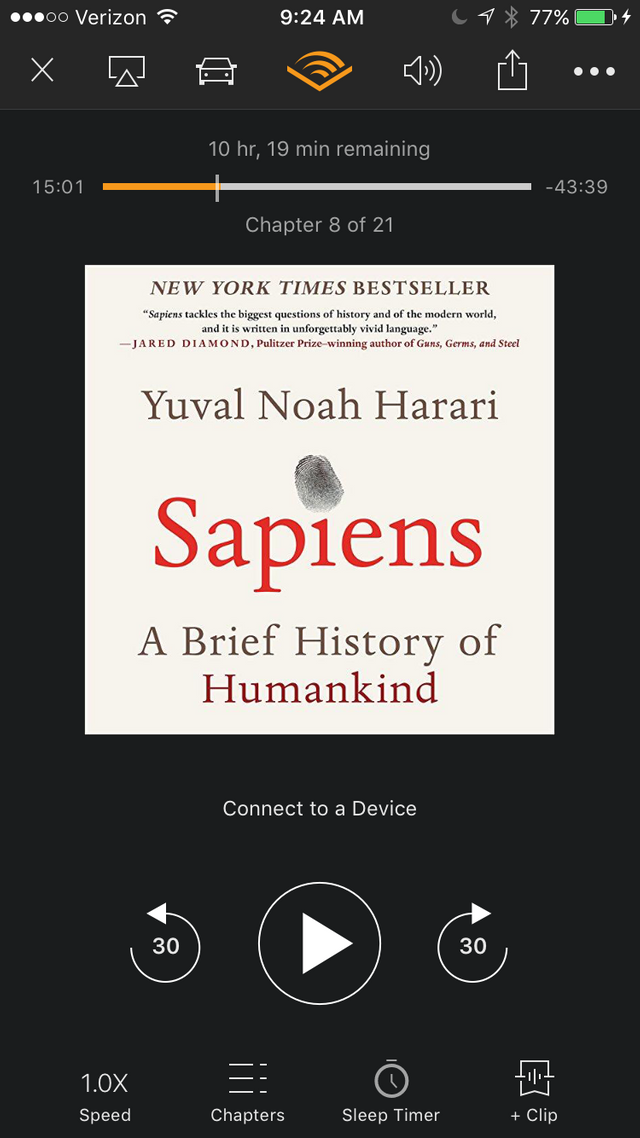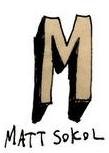How The Invention of Writing Solved Humanity’s Memory Problem and Scaled Society Up

I’m writing this post while 33% of the way through Sapiens, by Yuval Noah Harari, a book best described as a wonderful lecture from an eccentric professor, which describes the history of our species through an ultra-rational lens.

I’m enjoying it enough that, on @ethorf’s recommendation, I already splurged another Audible credit on the author’s following book Homo Deus: A Brief History of Tomorrow too.
My initial assumption was that I wouldn’t get very far into the book.
It just seemed like I’ve heard this story too many times. The history of mankind? I have heard it described: a slow drift from hunter gatherers to agricultural societies, then to feudal societies, and finally to industrial and technological revolutions of our modern era. It feels like too much information to cram into one book in a meaningful way.
This author makes it work by having a novel and enlightening approach to the whole topic. His way of breaking down every human institution as a form of myth, and his ability to treat these myths with appropriate reverence, is awesome.
It’s hard to succinctly describe, so you’ll have to try the book yourself if you want to see.
The Human Memory and Agriculture
Getting to the title topic, this morning I read chapters 6 and 7 from Sapiens. It was fascinating to hear the tale of the invention of writing.
Yuval explains that the largest civilizations prior to the Sumerians of ancient Mesopotamia were only a few hundred people large, such as the village of Jericho. The problem was that once a village got above a few hundred people, you needed data storage.
Larger societies need land rights documentation, financial records, judicial records / law books, accounting, and all kinds of stuff.
It’s not possible for the human memory to serve as the basis for this data storage. You can’t scale a legal system without writing down the information so it can be referenced by each party later on. This is why paper basically did for society of that time, what blockchain might do in its own way for our current society - it changed the way data storage worked, improving it in a way that revolutionized the structure of society itself.
Once you could write down a transaction, you could trade one hundred coins today for ten barrels of wheat in a year. The transaction data can be reliably and “immutably” (loosely speaking) stored via the written word.
Imagine yourself in the year 3000 BC, where people have only been able to use their speech and memory to communicate / store data. Now written words are invented. The king can keep track of every agreement and contract in the land, using his records to handle disputes based on more than “he said she said” kinda stuff. This transforms what a society can be.
It was only a “partial script,” like musical notation or mathematical numerals, which only refers to a limited range of data. You couldn’t write poetry, at least not as far as we know, with the written word technology available in 3000 BC.
That might be why Hammurabi’s code, the first written set of laws, did not happen until 1754 BC, right around the emergence of the first “full script” languages such as hieroglyphics.
History as Useful Themes and Narratives, Not Random Facts
It’s cool to reach a point in my own understanding of human history and society where I can view it from this more cohesive view. History now is feeling more like a grokable set of themes and stories, as opposed to a jumble of forgettable dates and names.
And so far Sapiens is helping a lot. I look forward to continuing the book tomorrow… and will probably share a few other lessons in future posts this week / next week.

What is fascinating is how every time the system of data storage changes throughout history, there is a revolutionary leap in technology. Primitive societies used human memory, after that, writing on stone plates helped create the first organized societies, another leap came with the use of papyrus as a medium of data storage which helped create the first great organized civilizations. The next leap was caused by printing which made knowledge widespread and started the first human attempt to globalize knowledge. Then data became digital, then came the internet, now the blockchain... The timespan between each leap becomes shorter and shorter while knowledge becomes ever so widespread and compressed.
Indeed, you sum up the whole progression nicely. I imagine this book is going to keep explaining each step in turn, hopefully with some cool insights along the way.
And to think that we're in (what could be) the latest and fastest one of all, the blockchain o_o
I wish I had more time to read great books like these. I'll wait for you to read the remaining 67% of it so you can tell us :)
I'm a huge fan of Yuval's work. I watched most of the content with him on YT. Have you watched his history lectures on YT? There is a link in my steemit blog.
Not yet but I'll possibly check it out, it would be cool to see / hear the author himself since this audiobook uses a different person as narrator.
nice new steem profile pic btw!
thnx man :-)
Thats interesting, around 1750BC drops into the time window that the story of Moses is set receiving the tablets from God, which of course were written in stone. Would be worth reading this to look for other biblical connections and avenues to search down.
Cheers for the review, best regards to you ;-)
Pretty cool, that would make sense if Judaism started to form around the time that "full script" written languages emerged.